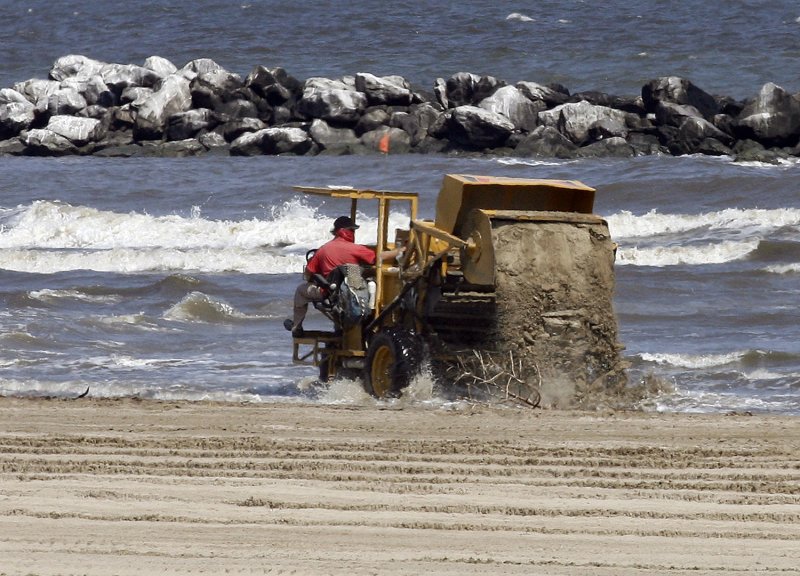AUBURN, Ala., Sept. 22 (UPI) -- British energy company BP said it would have crews along the U.S. gulf coast collect tar balls amid reports of Deepwater Horizon oil spill remnants.
Researchers from Auburn University said so-called tar balls stirred up by storm activity in the Gulf of Mexico have "essentially" the same chemical composition as hydrocarbons reported along the coast after the April 2010 oil disaster, London's Daily Telegraph newspaper reports.















